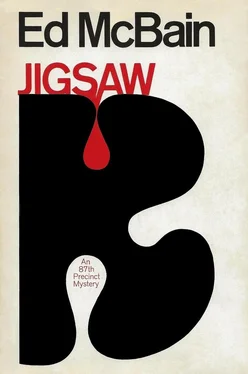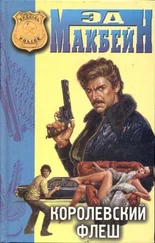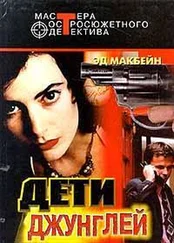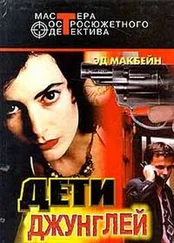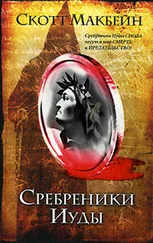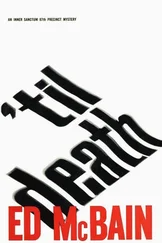He was even more surprised to learn that Geraldine Ferguson was dead.
He kept telling the police how surprised he was.
This was a Tuesday, he kept telling the police, and Tuesday was normally Gerry’s day off; she took Tuesdays, he took Wednesdays. He had not expected to see her at the gallery and was not surprised when she did not show up for work. He had closed the gallery at six, had gone for a quiet dinner with a close friend, and then had come down here to The Quarter for a nightcap before turning in. Arthur Brown asked him if he would mind coming uptown to the squadroom, and Kahn said he could see no objection to that, though perhaps he had better first consult his lawyer. Brown said he was entitled to a lawyer, and in fact didn’t have to answer any questions at all if he didn’t want to, lawyer or no lawyer, and then went into the whole Miranda-Escobedo bit, advising Kahn of his rights while Kahn listened intently, and then decided that he had better call his lawyer and have him come up to the squadroom to be present during the interrogation, murder being a somewhat serious occurrence, even in a city as permissive as this one.
The lawyer was a man named Anatole Petitpas, and he asked Brown to do the whole Miranda-Escobedo song and dance one more time for the benefit of the people in the cheaper seats. Brown patiently explained Kahn’s rights to him again, and Kahn said that he understood everything, and Petitpas seemed satisfied that all was being conducted in a proper legal manner, and then he signaled to the detectives that it was now all right to ask his client whatever questions they chose to ask. There were four detectives standing in a loose circle around Kahn, but their weight of numbers was offset by the presence of Petitpas, who could be counted on to leap into the fray if ever the questioning got too rough. This was murder they were fooling around with here, and nobody was taking any chances.
They asked all the routine questions (almost putting even themselves to sleep) such as WHERE WERE YOU AT TWO A.M. LAST NIGHT? (the time established by the ME as the probable time of Gerry’s death) and WHO WAS WITH YOU? and WHERE DID YOU GO? and WERE YOU SEEN BY ANYONE? all the usual police crap, the questions coming alternately from Brown, Carella, Meyer, and Hawes working smoothly and efficiently as a team. And then finally they got back to the photograph, everything always got back to the photograph because it was obvious to each of the cops in that squadroom that four people had been killed so far and that all of them had been in possession of a piece or pieces of a picture showing the location of the NSLA loot, and if a motive were any more evident than that, each of them would have tripped over it with his big flat feet.
“When I talked to you at the gallery Saturday,” Brown said, “you told me Gerry Ferguson was in possession of a certain piece of a photograph. When you said this, were you...”
“Just a second,” Petitpas interrupted. “Have you talked to my client before this?”
“I talked to him, yes.”
“Did you advise him of his rights?”
“I was conducting a field investigation,” Brown said wearily.
“He didn’t tell me he was a cop,” Kahn said.
“Is that true?” Petitpas asked.
“It’s true.”
“It may be significant.”
“Not necessarily,” Brown said, and smiled. The other detectives smiled with him. They were thinking of thousands of social agency reports in triplicate where, for example, a young man would be described as having been arrested at the age of fourteen for possession of narcotics, at sixteen for possession with intent to sell, and at eighteen for smuggling in twelve kilos of heroin in a brown paper bag, all of which damning criminal history would be followed by the words, typewritten in upper case,
NOT NECESSARILY SIGNIFICANT.
“Go on,” Petitpas said.
“I wanted to ask your client whether he knew for certain that Miss Ferguson had a piece of that photograph.”
“I knew for certain,” Kahn said.
“Miss Ferguson told us the piece was in the gallery safe,” Carella said. “Was that your impression as well?”
“It was my impression.”
“As you know, however, when we opened the safe, we did not find the photograph.”
“I know that.”
“Where did you think it was then?” Hawes asked.
“I don’t understand your question.”
“When you found out it wasn’t in the safe, when we opened the safe yesterday and the picture wasn’t in it, where did you think it might be?”
“I had no idea.”
“Did you think it was in Miss Ferguson’s apartment?” Meyer asked.
“He has already told you he had no idea where it was,” Petitpas said. “You’re asking him to speculate...”
“Let’s save it for the courtroom, counselor,” Carella said. “There’s nothing out of line here so far, and you know it. A woman’s been killed. If your client can satisfy us on certain points, he’ll walk out of here in ten minutes. If not...”
“Yes, Mr. Canella?”
“Carella. If not, I think you’re as well aware of the possibilities as we are.”
“Are you threatening him with a murder charge?”
“Did anyone mention a murder charge?”
“The implication was clear.”
“So was Detective Meyer’s question. Mr. Kahn, did you or did you not think the photograph might be in Miss Ferguson’s apartment?”
“May I answer that?” Kahn asked his lawyer.
“Yes, go ahead, go ahead,” Petitpas said, annoyed.
“I guess I thought it could have been there, yes.”
“Did you go there looking for it?” Brown asked.
“That’s it, I’m afraid,” Petitpas said. “I feel I must advise my client at this point that it would not be to his benefit to answer any further questions.”
“Do you want us to book him, counselor, is that it?”
“You may do as you wish. I know I don’t have to remind you that murder is a serious...”
“Oh, man, what bullshit,” Brown said. “Why don’t you just play ball with us, Petitpas? Has your man got something to hide?”
“I’ve got nothing to hide, Anatole,” Kahn said.
“Then let him answer the goddamn questions,” Carella said.
“I can answer the questions,” Kahn said, and looked at Petitpas.
“Very well, go ahead,” Petitpas said.
“I didn’t kill her, Anatole.”
“Go ahead, go ahead.”
“I really didn’t. I have nothing to hide.”
“Okay, counselor?”
“I have already indicated that he may answer your questions.”
“Thank you. Did you go to Gerry Ferguson’s apartment last night?”
“No.”
“Or any time yesterday?”
“No.”
“Did you see her yesterday?”
“Yes, at the gallery. I left before she did. This was sometime after you’d opened the safe.”
“Sometime after you knew the picture wasn’t in the safe?”
“That’s right, yes.”
“And sometime after you thought it might be in Miss Ferguson’s apartment?”
“Yes.”
“Let’s talk about the list, Mr. Kahn.”
“What?”
“The list.”
“What list?”
“The torn list of names you keep in a little cash box in the bottom drawer of your office desk.”
“I... I don’t know what you mean,” Kahn said.
“Four people on that list have already been killed, Mr. Kahn.”
“What list does he mean, Bram?” Petitpas asked.
“I don’t know.”
“It’s a list of names, Mr. Petitpas,” Brown said, “presumably of people who possess or once possessed portions of a photograph alleging to show the location of certain monies stolen from the National Savings and Loan Association six years ago. Does that clearly identify the nature of the list, Mr. Kahn?”
Читать дальше
